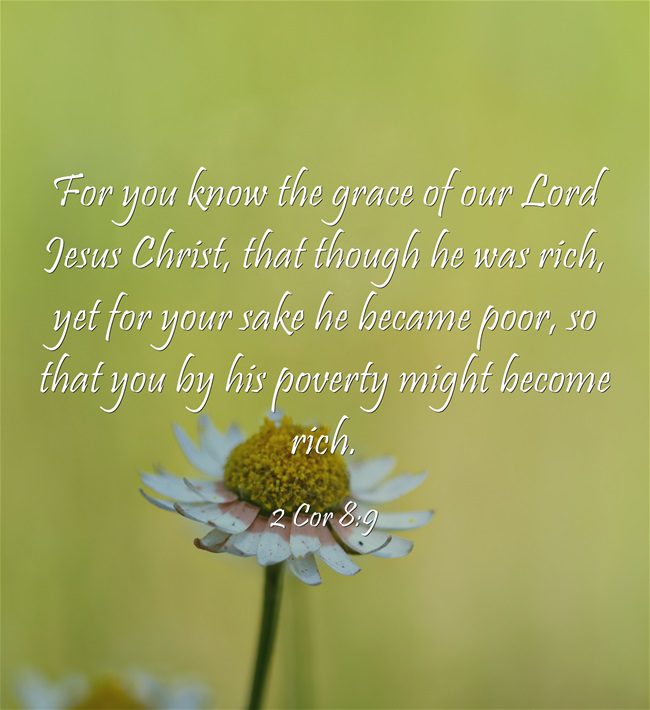Should pastors take a vow of poverty as some have in the past? Is there any value in this?
Vows of Poverty
One man once asked “why shouldn’t a Christian take a vow of poverty and give away all he has – after all, wouldn’t that be a mark of a true Christian” and I ask him, “Will you?” He was not sure how to answer. It seemed right to him for others to do this but he was uncertain if it was for him. Dietrich Bonhoeffer cautioned that even in our vow of poverty it can be laden with selfishness. Jesus said “For whoever would save his life will lose it, but whoever loses his life for my sake will find it” (Matt 16:25) but didn’t He also say that food and clothing are not what we should be worrying over? To “lose our life” doesn’t mean we lose everything we have but we die to the self and put our focus on seeking first the kingdom (Matt 6:33) and that means seeking first the King of that kingdom.
Called to What?
For centuries, monks have taken vows of poverty and secluded themselves from the rest of the world but is that biblical? No, at least the part where you isolate yourself from the world, elsewise, how would we share the gospel of Christ as we’re commanded to (Matt 28:19-20)? Jesus’ prayer for the disciples and those who would later believe was, “I do not ask that you take them out of the world, but that you keep them from the evil one” (John 17:15). Imagine if Paul had taken a vow of poverty and stayed in some hidden corner of the world? Would all those churches he planted been raised up? Jesus commands His disciples to go into all the world to make disciples of all nations and that couldn’t be done without the financial support of the church. Some may certainly take a vow of poverty, but what is the real motivation behind it? Is it to be seen by men? Does it attempt to glory God and if so, how?
Called to Poverty?
We know that the Scripture says “you know the grace of our Lord Jesus Christ, that though he was rich, yet for your sake he became poor, so that you by his poverty might become rich” (2nd Cor 8:9) but does this mean that Christians should be willing to give it all away because all we have to do now is look at Jesus, who gave up everything for us so we could have eternal peace, joy and fellowship with Him? We know that “Christ did not please himself but, as it is written: “The insults of those who insult you have fallen on me” (Rom 15:3). A few read Paul’s comment “yet always rejoicing; poor, yet making many rich; having nothing, and yet possessing everything” (2nd Cor 6:9) as if this means we give it all away and live in poverty but that is not what Paul was saying when you read the entire chapter in its proper context.
Warning of Vows
Jesus once said “All you need to say is simply ‘Yes’ or ‘No’; anything beyond this comes from the evil one” (Matt 5:37) and we are also told “do not swear by your head, for you cannot make even one hair white or black” (Matt 5:37) and “do not swear an oath at all: either by heaven, for it is God’s throne” (Matt 5:34). James adds “But above all, my brothers, do not swear, either by heaven or by earth or by any other oath, but let your “yes” be yes and your “no” be no, so that you may not fall under condemnation” (James 5:12). If you have a family, you may not even be able to make a vow of poverty because you have a family to support. For those who are single, it would be easier, but what if you made a vow of poverty and told all your family, friends, co-workers, and the church, and then backed out? What would people think about your mental state? They would likely want to know why you are taking a vow of poverty. We have to remember that Jeremiah warned us about what we think in our hearts because “The heart is deceitful above all things, and desperately sick; who can understand it” (Jer 17:9).
Conclusion
Take a vow of poverty is strictly personal but the Bible never teaches we are to do this. We are told to let our yes’s be yes and our no’s be no. To add a vow to do something may not be the wisest thing to do. The bottom line of every decision you make is “Does it glorify God or does it draw attention to myself?”
Article by Jack Wellman
Jack Wellman is Pastor of the Mulvane Brethren church in Mulvane Kansas. Jack is also the Senior Writer at What Christians Want To Know whose mission is to equip, encourage, and energize Christians and to address questions about the believer’s daily walk with God and the Bible. You can follow Jack on Google Plus or check out his book Teaching Children the Gospel available on Amazon.












